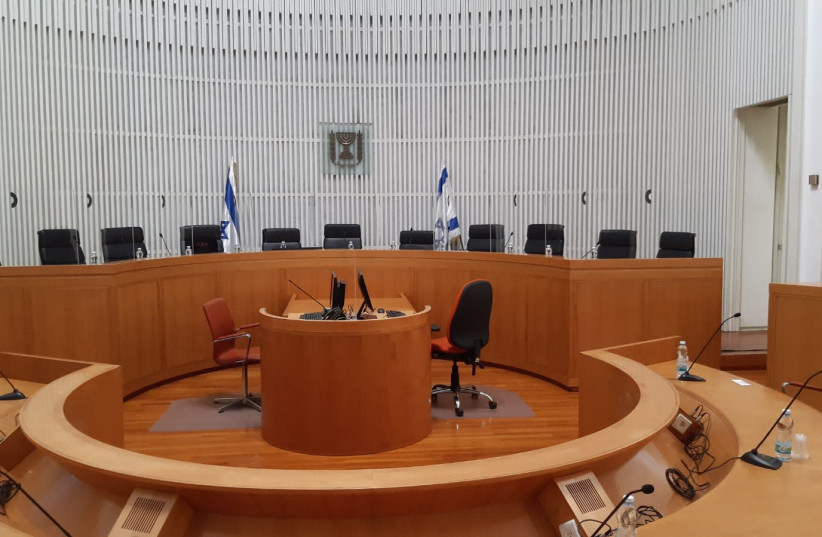Police are now operating under a new, reformed law enforcement policy for Ethiopian-Israeli citizens, in a victory for the Tebeka advocacy group.
In January almost a year ago, the High Court of Justice had ruled that the police cannot demand that Ethiopian-Israeli citizens produce identification cards without reasonable suspicion, essentially tossing a key part of law enforcement policy.
All three justices – High Court President Esther Hayut, Vice President Neal Hendel and Alex Stein – disapproved of the existing police policy of aggressively demanding identification from Ethiopians, even when there was no concrete criminal suspicion.
Stein went even further than Hayut and Hendel and said the entire rule relating to compelling citizens to produce their identification card was unconstitutional unless a different law relating to criminal suspicions came into play.
The court wrote at the time, “There is a suspicion that the authority will be used in an arbitrary way and will lead to the violation of human rights.”

Frequently, police and other government agencies make only slight and non-substantive changes when given such orders by the High Court, so the proof will be seen in whether the new policy addresses the concerns before the court.
According to Tebeka CEO Tomer Marsha, the new police policy regarding identification is a sea change from the old one and should greatly improve life and law enforcement issues for Ethiopian-Israelis.
Under the new policy, police can only request identification if they have a reasonable suspicion that the individual in question fits into a specific list of potential legal issues, and if there is concrete potential information in the ID card that relates to the legal issue.
Some of the items in the list of legal issues, such as concern that an individual might violate the law against non-citizens illegally crossing into Israel (such as non-Jewish Eritreans and Sudanese) or a concern that a person is conducting themselves in a suspicious manner are still quite vague.
Yet, Marsha said the new policy is still a game-changer because until now when police unfairly accosted Ethiopian-Israelis, they claimed that they did not even need a reason.
Now anytime a police official asks an Ethiopian-Israeli to identify him or her self, if they do not at least have a well thought out potential legal basis for doing so, they could get in trouble and any charges they might want to bring would be more likely dropped.
MOST IMPORTANTLY, the new policy puts the burden on the police to justify their law enforcement actions.
Although the policy is only coming to light now (the police initiated it in July but tried not to draw attention to it) and early reports from the field are encouraging, Marsha suggested reviewing the impact in the field after a year or so.
Technically, even the old rule from a year ago did not refer only to Ethiopians and could be used for any citizens.
However, in practice, the rule was developed in March 2019 to give police some cover for seeking identification from Ethiopians, but without appearing to be racist and while improving on previous policies which Ethiopians found even more oppressive.
Basically, the High Court’s message in January was that the March 2019 attempt to make police policies more friendly to Ethiopians was inadequate.
Rather, the majority opinion said police could only demand identification if there was a specific situation and a logical concrete need, but not simply to approach an Ethiopian on the street about whom there was no criminal suspicion.
Moreover, the police had argued that the rule allowing police to ask for identification also empowered them to ask certain questions about a person’s identity, telephone number and to perform certain reviews related to their record.
The High Court rejected these extensions and said that even where a police officer could ask for an identification card based on a specific and concrete need, they could not ask further questions or perform any reviews without an equally concrete additional criminal suspicion.
The attempted reform came during a period in which the Emi Palmor Committee (Palmor was then the Justice Ministry director-general) was exploring a wide variety of ways to improve treatment of Ethiopians, including in the law enforcement arena.
The justices added that part of what came out of the Palmor Committee was that any special law enforcement measures by police should have clear, neutral and mandatory criteria that would avoid abuse.
The Palmor Committee emerged out of a number of incidents of mistreatment by Ethiopians and a general criticism from the Ethiopian sector that the government ignored their needs.
She said the current police rules left too much discretion to police officials in the field, which in turn made abuse more likely.
Marsha added, “We were the first who noticed the harm when the police introduced the rule as if it was consistent with the Palmor Committee. We filed the petition because of the violation of human rights.”
